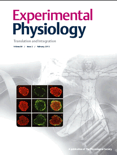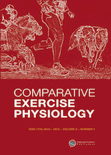
PHYSIOLOGY
metrics 2024
Shaping the Future of Physiological Research
Introduction
PHYSIOLOGY, published by the American Physiological Society, is a leading peer-reviewed journal that has attained an impressive Q1 ranking in the field of Physiology, underscoring its significance in advancing research and knowledge dissemination. With a robust impact factor reflective of its high-quality publications, this journal serves as a critical platform for researchers and professionals to publish their innovative findings. Offering open access options, PHYSIOLOGY ensures wide accessibility to cutting-edge research that spans various aspects of physiological sciences. The journal's dedicated focus on interdisciplinary research enhances its appeal to a diverse audience, facilitating collaborations and discussions that push the boundaries of our understanding in physiology. Established in 2004 and converging toward 2024, PHYSIOLOGY stands at the forefront of scientific inquiry, making a substantial impact in the fields of biochemistry, genetics, and molecular biology.
Metrics 2024
 2.05
2.05 5.30
5.30 8.70
8.70 144
144Metrics History
Rank 2024
Scopus
IF (Web Of Science)
JCI (Web Of Science)
Quartile History
Similar Journals

Frontiers in Physiology
Advancing the frontiers of physiological knowledge.Frontiers in Physiology, published by FRONTIERS MEDIA SA, is a leading open-access journal that has been at the forefront of physiological research since its inception in 2010. As a reputable publication based in Switzerland, it aims to foster the dissemination of groundbreaking findings across various domains of physiology, engaging a global audience of scholars and practitioners. With a commendable Q2 ranking in the fields of both general physiology and medical physiology for 2023, this journal stands out in its field, achieving a significant Scopus rank of #32/113 in medical physiology and #58/193 in biochemistry, genetics, and molecular biology. Frontiers in Physiology not only commits to maintaining high scholarly standards but also ensures that all its articles are freely accessible, thereby promoting collaborative knowledge exchange. With a clear focus on advancing our understanding of physiological processes, the journal plays a crucial role in the development of innovative approaches to health and disease, making it an essential resource for researchers, professionals, and students alike.

Journal of Comparative Physiology B-Biochemical Systems and Environmental Physiology
Unlocking the Secrets of Biochemical Systems in NatureJournal of Comparative Physiology B-Biochemical Systems and Environmental Physiology, published by SPRINGER HEIDELBERG in Germany, stands at the forefront of research in the fields of physiology, biochemistry, and ecological systems. With a commitment to fostering interdisciplinary communication, this journal has been a vital resource since its inception in 1974, converging scientific exploration through the lens of biochemical mechanisms and environmental adaptations in animal systems. Renowned for its rigorous peer-review process, it has achieved impressive rankings, including Q2 in Animal Science and Zoology and Ecology, Evolution, Behavior and Systematics, reflecting its substantial impact within these disciplines. The journal aims to disseminate cutting-edge research that advances our understanding of physiological and biochemical processes while addressing contemporary environmental challenges. While currently operating on a traditional access model, the journal's contributions are crucial for researchers, professionals, and students seeking profound insights into the complex interactions between organisms and their environments.

Current Research in Physiology
Innovating Insights into Biological SystemsCurrent Research in Physiology is an esteemed academic journal published by Elsevier, aimed at advancing the field of physiology through high-quality research contributions. Since its inception in 2019, the journal has provided a platform for innovative studies and reviews, addressing both fundamental and applied aspects of physiology across various biological systems. With its ISSN 2665-9441, it operates under a non-open access model, ensuring rigorous peer review while also fostering a broad readership. The journal has been classified in the Q3 category for both Physiology and Medical Physiology as of 2023, reflecting its growing influence and relevance, as evidenced by its Scopus rankings within the respective fields. Designed for researchers, clinicians, and students alike, Current Research in Physiology is committed to disseminating cutting-edge research that informs both academic inquiry and clinical practice, paving the way for future advancements in physiological science.

American Journal of Physiology-Regulatory, Integrative and Comparative Physiology
Integrating Research for a Deeper Understanding of LifeThe American Journal of Physiology-Regulatory, Integrative and Comparative Physiology, published by the American Physiological Society, serves as a premier platform for disseminating cutting-edge research in the fields of physiology, emphasizing regulatory, integrative, and comparative studies that advance our understanding of bodily functions. With an ISSN of 0363-6119 and E-ISSN of 1522-1490, this esteemed journal is recognized for its substantial impact, maintaining a 2023 Q2 ranking in both the physiology and medical physiology categories as well as commendable positions in Scopus rankings. The journal has been pivotal since its inception in 1977 and continues to foster interdisciplinary dialogue among researchers, professionals, and students alike, contributing significantly to the evolving landscape of physiological sciences. Although it operates under a traditional subscription model, its commitment to high-quality, peer-reviewed content ensures that it remains an essential resource for anyone engaged in physiological research and education.

FISH PHYSIOLOGY AND BIOCHEMISTRY
Illuminating Biochemical Pathways in Aquatic LifeFISH PHYSIOLOGY AND BIOCHEMISTRY, published by Springer, is a leading journal in the fields of aquatic science, biochemistry, and physiology, with an impressive trajectory since its inception in 1986 and continuing through 2024. Operating from the Netherlands, this journal serves as a vital platform for researchers, professionals, and students alike, showcasing innovative studies that explore the physiological and biochemical aspects of fish, contributing significantly to our understanding of aquatic ecosystems and their inhabitants. With a robust impact factor reflected in its Q1 status in Aquatic Science and notable rankings in other relevant categories, FISH PHYSIOLOGY AND BIOCHEMISTRY maintains a strong scholarly influence, evidenced by its Scopus ranking within the top quartiles of various biological sciences disciplines. While the journal does not currently offer open access options, it remains a cornerstone for advancing knowledge and fostering collaboration within the community dedicated to aquatic biology and related fields.

Physiological Reports
Connecting Researchers to a World of Physiological DiscoveriesPhysiological Reports is a pioneering open-access journal published by WILEY, dedicated to advancing the field of physiology through the dissemination of high-quality research. Since its inception in 2013, this journal has provided a platform for innovative studies in both general physiology and medical physiology, making significant contributions to our understanding of biological processes. With an impact factor that reflects its growing influence—as evidenced by its placement in the Q2 category for physiology and medical physiology in 2023—Physiological Reports is positioned as a vital resource for researchers and practitioners alike. The journal encourages the submission of diverse studies ranging from cellular mechanisms to systemic physiology, presenting a unique opportunity for authors to reach a global audience without access barriers. It has established a reputation for rigorous peer review and timely publication, ensuring that cutting-edge research is readily available to stimulate further inquiry and collaboration in the scientific community.

Comprehensive Physiology
Exploring Innovative Pathways in Medical ResearchComprehensive Physiology is a premier journal published by WILEY, dedicated to the profound exploration of physiological science. With an impact factor that underscores its significance within the field, this journal serves as a pivotal resource for researchers, professionals, and students alike, ensuring access to cutting-edge studies and reviews that span various domains of physiology. It stands proudly in the Q1 category across multiple subfields including Medicine (miscellaneous), Physiology, and Medical Physiology, reflecting its outstanding position within the scientific community. Evaluated within prestigious bibliometric ranks, it boasts an impressive Scopus ranking, placing it in the 12th percentile for medical physiology and 23rd percentile in biochemical, genetic, and molecular physiology. As it converges from 2011 to 2024, Comprehensive Physiology continues to foster a platform for innovative discoveries and collaborative exchanges, thereby contributing significantly to the advancement of medical knowledge and understanding of physiological processes.

Journal of Applied Physiology
Elevating the Science of Health and Exercise.The Journal of Applied Physiology, established in 1948 and published by the American Physiological Society, stands as a cornerstone in the field of physiology and applied health sciences. With an impact factor reflecting its rigorous scholarly contributions, this peer-reviewed journal ranks in the Q1 category for both Medicine (miscellaneous) and Physiology as of 2023, further emphasizing its prestige and relevance. Researchers and practitioners are drawn to its comprehensive scope, which includes physiological and biomechanical responses relevant to health, exercise, and clinical practices, making it an essential resource for advancements in sports science and medical physiology. Though it does not offer Open Access, the journal provides a wealth of high-quality research, with contributions that are crucial for understanding the complexities of human physiology. Its inclusion in Scopus ranks demonstrates a solid commitment to advancing knowledge in the field, appealing to a diverse audience of researchers, professionals, and students committed to exploring the intricate interactions between physiological processes and applied health.

EXPERIMENTAL PHYSIOLOGY
Shaping the future of Nutrition and Physiology research.EXPERIMENTAL PHYSIOLOGY, published by WILEY, stands as a vital resource in the fields of Nutrition and Dietetics and Physiology, providing high-quality, peer-reviewed research since its inception in 1990. With an impressive categorization into the Q2 quartile in these domains, the journal emphasizes the integration of experimental and clinical findings, making significant contributions to our understanding of physiological processes and nutritional impacts on health. The journal operates within a competitive landscape, ranked significantly in Scopus, showcasing its relevance to both the medical community and nutritional sciences, as evidenced by its rankings in Nursing, Medicine, and Biochemistry. Though it is not currently open access, the journal remains an indispensable tool for researchers, professionals, and students seeking to deepen their knowledge and stay updated on cutting-edge research. With a publication window extending to 2024, EXPERIMENTAL PHYSIOLOGY continues to influence the academic discourse and promote advancements in its respective fields.

Comparative Exercise Physiology
Pioneering Discoveries in Exercise Across SpeciesComparative Exercise Physiology is a peer-reviewed journal published by Wageningen Academic Publishers focused on advancing the scientific understanding of exercise physiology across various species and contexts. With its ISSN 1755-2540 and E-ISSN 1755-2559, it serves as a vital platform for disseminating research findings that bridge the gap between exercise science and comparative physiology, enriching the fields of biochemistry, biophysics, and sports medicine. The journal holds a notable position in the academic landscape, with a Q4 ranking in multiple categories and a commendable Q3 ranking in Orthopedics and Sports Medicine, highlighting its relevance and contribution to these domains. Although it operates without an Open Access model, the journal remains committed to providing well-researched and insightful articles that appeal to a diverse audience of researchers, professionals, and students aiming to enhance their knowledge and application of exercise physiology in both human and veterinary contexts. By fostering interdisciplinary dialogue and offering comprehensive insights, Comparative Exercise Physiology plays a crucial role in the pursuit of knowledge in the ever-evolving field of exercise science.